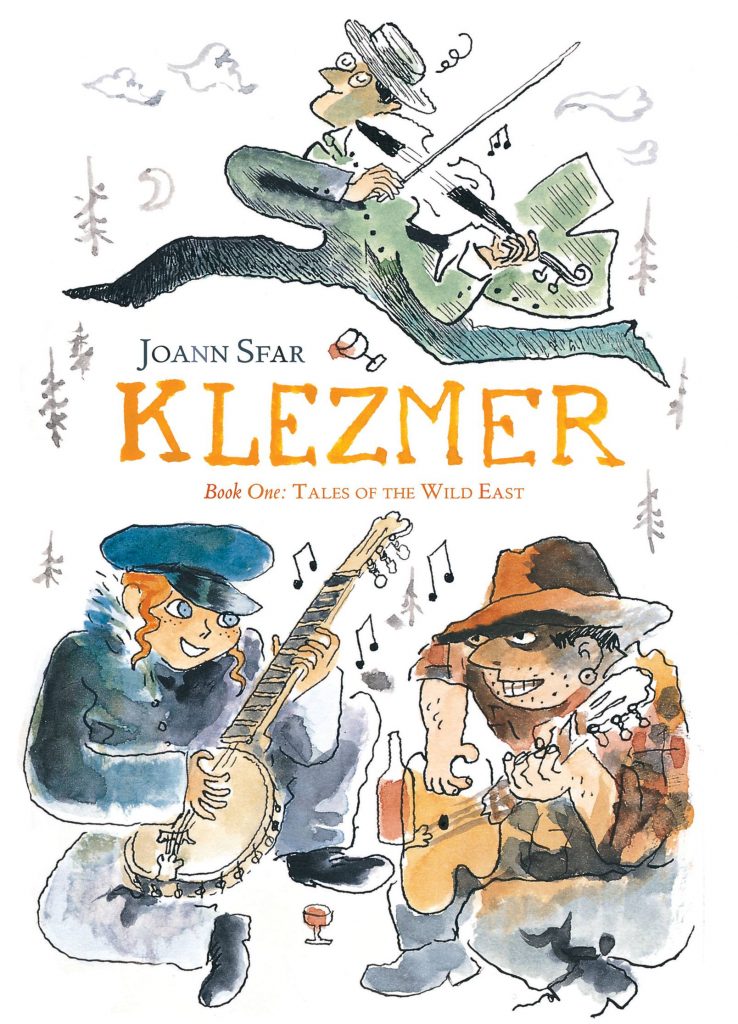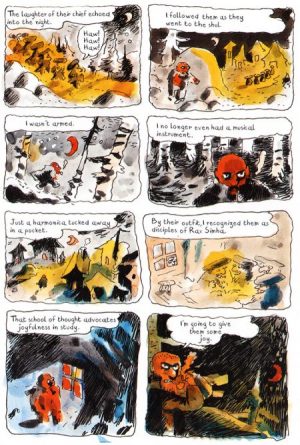Review by Frank Plowright
In a remote area of Russia shortly after World War II, harmonica player Noah Davidovich is the only survivor when he and his travelling band are set upon by other musicians. It’s a dark opening to a continually dark and meandering story of how another band comes together, along with the stories of those who populate it. Jaacov, for instance, is expelled from his school for stealing a coat, comes across the bodies of the slain musicians and picks up the only undamaged instrument, vowing he’ll learn to play it. Others we follow have more random stories, but what unites them is their living in a country where Jews and others are still persecuted and have to fear for their lives. These desperate times breed desperate attitudes.
There’s an almost manic rush about Klezmer, which looks as if Joann Sfar produced the entire book in a single crazed night. Sketchy, impressionistic figures, some constructed from a single line, are fleshed out with blobs of watercolour across a meandering dreamlike story. At face value it’s about a group of musicians coming together via a series of chance encounters, but it’s steeped in Jewish culture and it’s that and the attitude towards it that Sfar really wants to explore. His extensive back of the book notes are fascinating as he explains themes and touchstones incorporated into Klezmer, including how the music itself is joyous and celebratory and intended to be a form many can pick up. The cast are all conflicted to one degree or another, and, importantly, not all Jewish, Sfar exploring Jewish culture externally as well as internally, and in places it makes for uncomfortable reading as there are deliberately no paragons of virtue here. It’s also important to take in from the background material that Sfar is looking at a Jewish culture that’s now all-but died out, the persecutions and hardships of World War II resulting in mass emigration.
While the gist can be understood, Sfar makes no concessions for those who don’t know the rigours of Jewish beliefs, an example being several pages at a time occupied by the singing of Yiddish songs. Anyone can appreciate the fluidity of the accompanying art, but it’ll take a fair amount of typing into an online translator for the meaning. Tales of the Wild East is the only translated volume of a story told over five in French, and as such it’s a repository of occasional pleasures rather than gleaming treasures.





